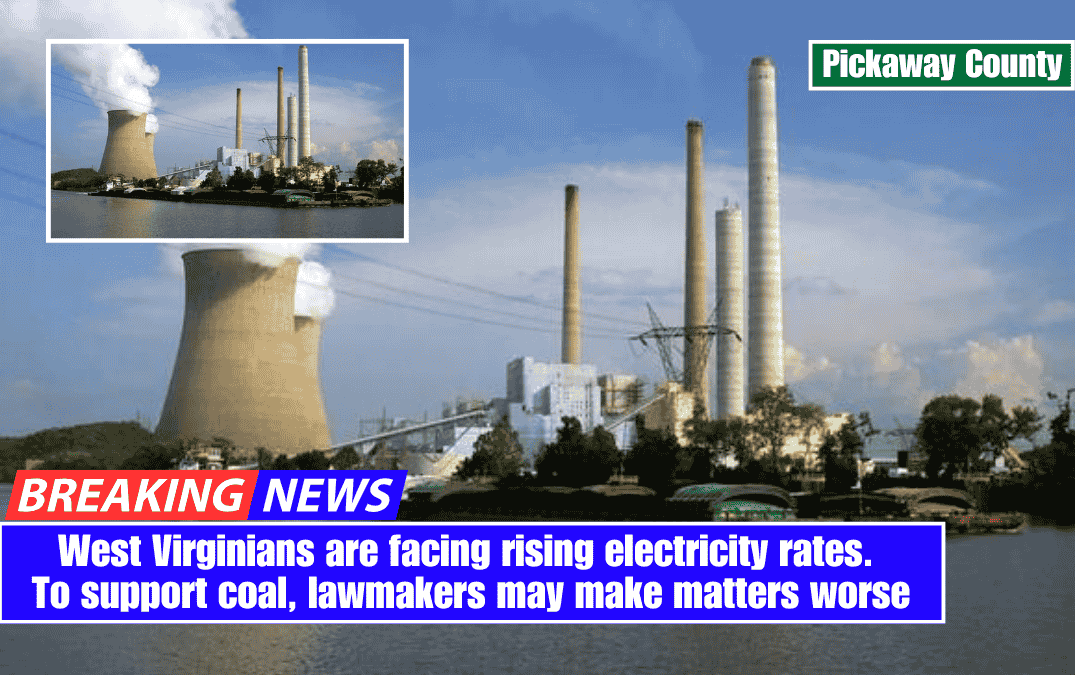William Worley is replacing all of his Raleigh County home’s lighting with energy-efficient bulbs. He also turns off his air conditioner when the weather is nice enough.
Worley and his wife are working to reduce their energy consumption. Their power bill in January was nearly $700, and it increased to $760 in February.
Worley’s power bill has typically been in the hundreds of dollars, but it has occasionally reached the mid-300s during peak heating and cooling periods, such as in December. However, the jump in January came as a surprise.
“We knew what the weather was, but it was just a shock to us,” he claimed. “We’ve lived here for over 20 years now, and it’s not ever hit this hard before.”
The Worleys aren’t alone. West Virginians are struggling to keep up with rising electricity costs.
Lawmakers have stated that they want to assist. However, the key proposal they are advancing will not solve the problem of rising power bills and will most likely exacerbate it.
A measure that doesn’t tackle the problem
Earlier this month, the Senate Energy Committee considered a bill aimed at improving the reliability and affordability of electricity for West Virginians.
It would require utility companies to demonstrate that changes to their energy production methods will still meet reliability requirements during peak energy demand periods. Otherwise, they wouldn’t be able to pass on the cost to customers.
The emphasis on reliability may discourage power companies from investing in renewable energy sources. Utilities would struggle to recover any costs associated with solar and wind power because they do not produce energy continuously. Companies would have to bear the entire cost of renewable energy investments, whereas they could recoup costs from fossil fuels.
Supporters of the bill, including the West Virginia Coal Association, argue that it will encourage utility companies to run coal-fired power plants more frequently than they do now.
However, utility companies claim that the high cost of electricity stems from the cost of burning coal.
“The price of the fuel we put into those plants is the most important factor in whether they run every day,” said Randall Short, Appalachian Power’s director of regulatory services. “When the price of coal is cheaper than the overall energy price in the market, the plants run.”
During testimony earlier this month, Short told lawmakers that the average Appalachian Power customer’s power bill had increased by nearly $50 since 2019, with rising fuel costs accounting for 60% of the increase.
The rise and fall of coal
For decades, West Virginia had some of the lowest power rates in the country, thanks largely to the state’s coal mines. However, as more affordable alternative energy sources have emerged, coal has become increasingly expensive.
Now, the state’s continued reliance on coal has contributed to rising power costs, as it cannot compete with natural gas and renewable energy.
Appalachian Power, which operates three coal-fired power plants in West Virginia, has come under increasing scrutiny in recent years for how frequently it uses its power plants to generate electricity.
In fact, the West Virginia Public Service Commission previously mandated that the company operate its plants 69% of the time by 2021, despite criticism that doing so was not economically viable.
Last week, the Sierra Club reached an agreement with the PSC regarding its directive. Under the proposed settlement, the regulatory agency withdraws its 2021 order. However, the PSC has stated that, while not a requirement, it is a goal for power companies.
More paperwork and higher costs
According to the bill considered by the Senate Energy Committee earlier this month, the West Virginia PSC would be in charge of ensuring that utility companies follow the rules, but its chairman, Charlotte Lane, said it would make no difference to what they are already doing.
“This bill, I’m sure, has a really good intention, but to the extent that I’m supposed to understand it, it’s very difficult for me to understand what it’s trying to get at,” Lane told lawmakers during her voluntary testimony on the measure on March 13.
Except for the “additional administrative burden” of more reports, the commission already does everything outlined in the bill, she said.
“No, except to review a bunch of more reports,” Lane said.
While the bill would have little impact on the PSC, state power companies have warned that it could raise West Virginians’ bills.
Mon Power and Potomac Edison, both FirstEnergy subsidiaries, believe the bill will “significantly increase the administrative burden of utility rate cases in West Virginia and result in higher bills for customers,” according to Will Boye, a spokesperson for the company.
“West Virginia’s current regulatory structure already provides strong oversight through the Public Service Commission and allows for transparent, effective utility planning,” the politician said.
Appalachian Power officials expressed similar sentiments.
The bill “aims to change how we consider different electricity generation sources, focusing on factors beyond cost,” said Aaron Walker, president and chief operating officer of Appalachian Power, in a statement.
“If this is the path the legislature chooses, we will align with the state’s policy, but this change could lead to higher electricity bills for our customers.”
Walker also stated that the bill creates uncertainty, making it “challenging to retain and attract business in West Virginia.”
Meanwhile, back in Raleigh County, Worley is looking to conserve energy, especially since his utility provider, Appalachian Power, is requesting a rate increase from the PSC.
He went on: “It seems like every turn we take here, it hits us in the pocketbook — the power, the food and who knows what else.”
West Virginians are facing rising electricity costs. To support coal, lawmakers may make matters worse. appeared first in Mountain State Spotlight, West Virginia’s civic newsroom.










